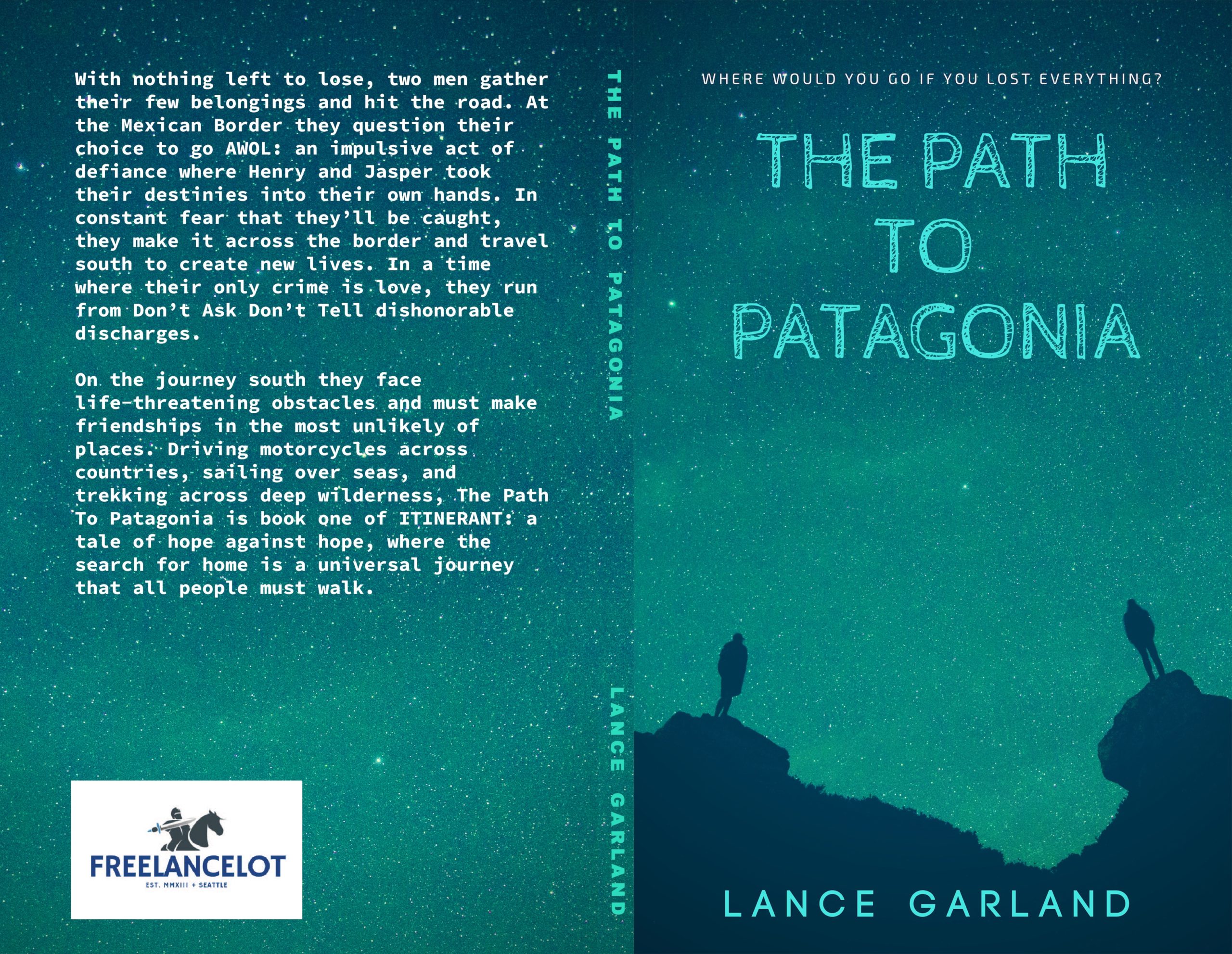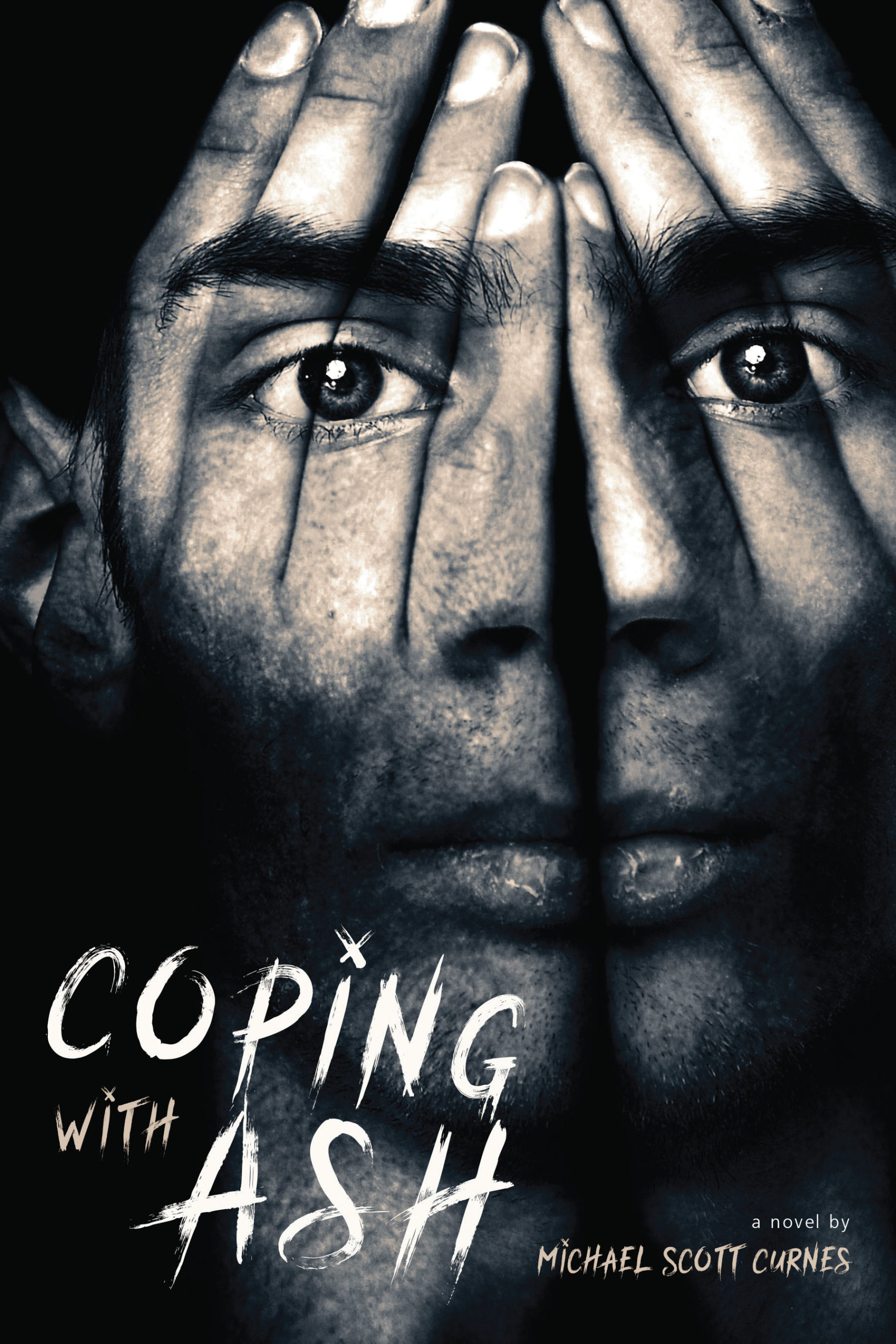The Path To Patagonia
Path to Patagonia is the moving story of two men who flee from the homophobic subjugation of the US Navy during its Don’t Ask Don’t Tell policy on LGBTQ sailors, and their consequential dishonorable discharges. Henry and Jasper escape across the Mexican border, against the tide of immigrants trying to gain entry into The United States, and make their way across South America, facing the harsh reality of life as fugitives from their homeland.
Lance Garland’s narrative jumps between different narrative forms, from the omniscient narrator to the various first-person narratives of the main characters, allowing the reader a variation of insights into a range of perspectives within the narrative. Garland includes the perspective of a secondary character, Amelia, in his range of narrative angles, which gives the story a refreshingly distinctive style of storytelling and prevents the writing from being restricted by the protagonists. Moreover, Garland doesn’t allow the intrigue of events to be restricted by the realism of the story’s setting. However, the story unmistakably lacks the socio-political criticism in the subtext of the narrative required to elevate Path to Patagonia from an adventure novel to an empowered protest of human rights and personal turmoil. In addition, Garland does not provide sufficient context for the reader to be inextricably drawn into the political backdrop. There are many questions implicated in the thread of the events that are never answered, and although these may be researched or presumed, questions like, Why do the sailors choose Patagonia as a destination?, require attention, particularly as this question is implied in the title.
In places, Garland allows his writing to become clichéd at the risk of losing his own writing style to impulsive expressions of sincerity. The result is that the emotion is raw and impassioned but suffers from loss of effectiveness and poignancy from their overuse. There are expressions whose effects are more awkward than emotive where there is an inconsistency in the level of writing, and most particularly, where there are writing errors. Most surprising, is how rushed the ending feels.
Nevertheless, Garland’s writing is powerful in his depiction of the human condition in relation to the natural world. His description of their first sighting of the Galápagos Islands is succinct and poetic. There is a sense of spiritual awakening inspired by the powerful scenes of natural beauty, and the stark and harsh realities the two men have been thrust into. In these moments, Garland realizes a deep philosophy regarding the concept of home, country, and the penalties to be paid for the choices of those who claimed the land before us; a philosophy that gives the story purpose and significance.
| Author | Lance Garland |
|---|---|
| Star Count | /5 |
| Format | eBook |
| Page Count | 149 pages |
| Publisher | Freelancelot Publishing |
| Publish Date | 18-Mar-2019 |
| ISBN | 0978179585285 |
| Bookshop.org | Buy this Book |
| Issue | July 2019 |
| Category | Popular Fiction |
| Share |






Reviews
There are no reviews yet.